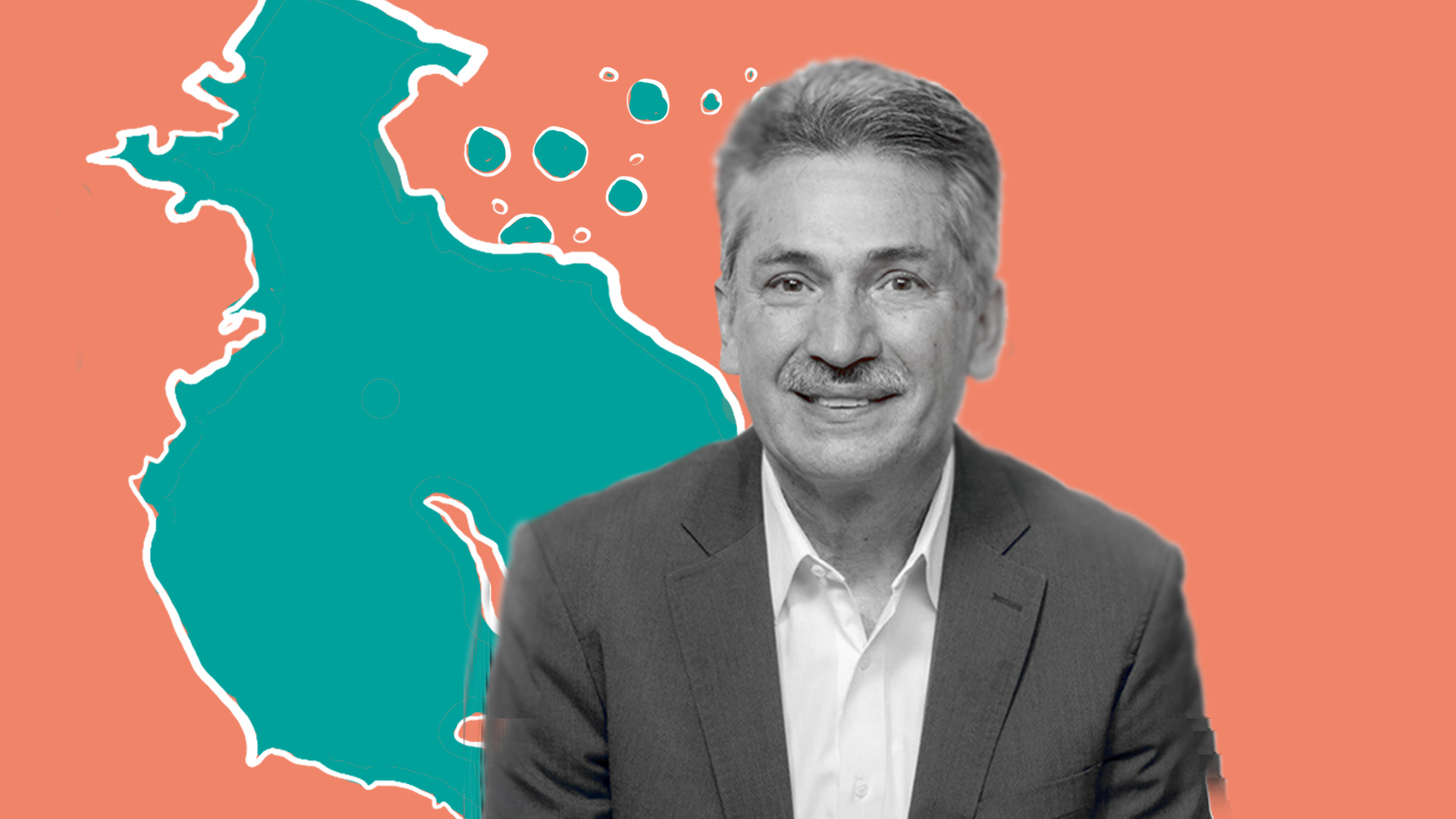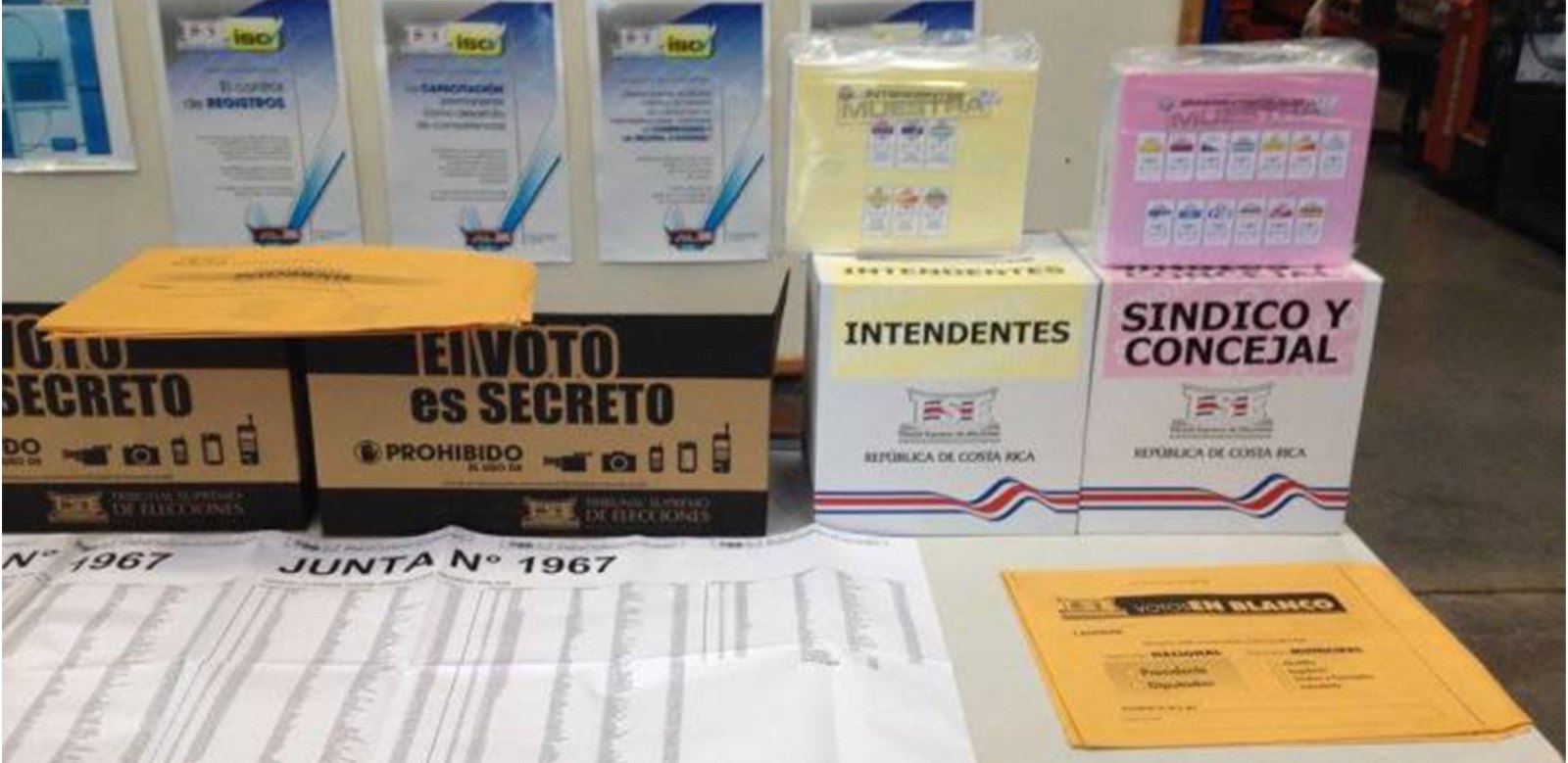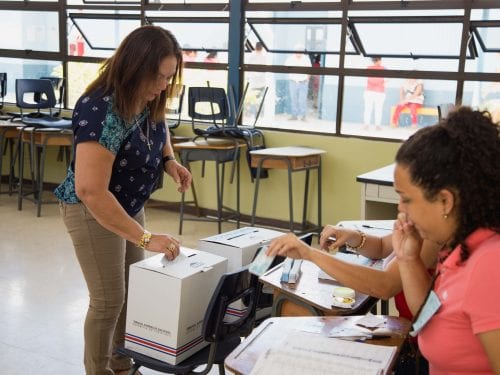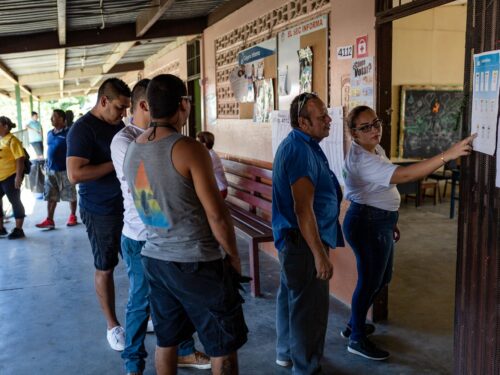
Welmer Ramos was the minister of economy and the president of the Governing Council of the Development Banking System for three years during Luis Guillermo Solis’ term in office (2014-2018). He was born in Guanacaste, but holds a seat for the province of Heredia in the Legislative Assembly. He is the presidential candidate for the Citizen Action Party (PAC for the Spanish acronym), the ruling party for the last two terms.
The economist was involved in the Chinese cement case, one of the biggest corruption scandals in the country. In 2019, the Ethics Prosecutor’s Office filed a criminal case against him for influence peddling.
As a legislator, Ramos focused his work mainly on economic and agricultural issues. Among his most notorious projects was the law against usury and the law to reduce the value-added tax on organic agricultural products.
The legislator affirms that the province will be a priority if he becomes president. He says that he’d get involved in road infrastructure, he’d promote tourism, coastal development, education and internet access.
In this interview, he talks about his projects for economic recovery, his plans to improve water quality in Bagaces, the canton that he’s from, and about his position regarding his party’s actions in Guanacaste. This text was edited for length and structure to improve readability.
You are the candidate from the current president’s party in this electoral race. What projects or laws from Alvarado’s administration would you promote?
Several. The Paacume project and all the exploitation of water resources in the Bagaces and Cañas area to put an end to the problem of contaminated water once and for all. It’s one of the things that we’ll continue with moving forward. Also an agricultural insurance law so that the farmer isn’t exposed to losses due to climatic conditions of drought or hurricanes, so that if there are losses, there is someone who makes up for it and it’s not the farmer who goes bankrupt.
How do you plan to create more jobs in the area?
The Paacume project is one of those things that can create jobs. The other issue is promoting rural community tourism. If something creates jobs, it’s that. We’ll not only promote it through advertising, but we’ll help to form teams so that they can take care of large groups of tourists. We’re going to reinforce technical training so that the people of Guanacaste can train in a second language.
The other thing is to give young people the ability to start businesses, since they generally can’t have access to credit because they don’t have assets. We’ll be generating security deposit or bond systems so that if they have good, viable and feasible projects, they can develop them.
What strategies would your government have to attract stable economic income flow to the province?
We have good climates and we also have to diversify our tourism promotion in the low seasons. Another thing is to promote geothermal projects, both the one on the slopes of Rincon de la Vieja and the one in Miravalles, which are releasing such a large amount of CO2 into the atmosphere that they could meet the demand of Central America and the Caribbean. That same CO2 can be used for agriculture, since it allows for greater plant growth in controlled environments and also pest control.
You talk about the probability of tourism in Guanacaste during the rainy season, but those are the months when there are severe floods in communities like Nosara or Santa Cruz. How could one go sightseeing like that?
Well, what we have to create there is the infrastructure to provide much more safety. Dikes need to be built. Better channeling has to be done. The Costa Rican State has to do it, because that is strengthening the capabilities that we have.
Where would you get the financing for that type of infrastructure project?
We have the Costa Rican Electrical Institute (ICE). If anyone knows about ICE’s ability to build, it’s the men and women of Guanacaste because ICE has transformed all of the upper elevations of Guanacaste through the investments it makes. We know that it’s capable of building large housing projects, highways, dams and anything else you want in construction.
Do you commit to developing these projects to have an impact in the face of natural disasters in these areas?
Of course. Not only do I commit, but I have taken, I take and I will take responsability in the face of these situations.
These natural events are partly consequences of the climate crisis. What specific actions would you take to adapt these territories of the country to climate change?
We’ll get universities, the Ministry of Agriculture and Livestock, the Ministry of Economy, Industry and Commerce together with private companies and SMEs, to train and strengthen the capacities we have to defend ourselves against climate change. Also I’ve already said before that on the protection side, we’re going to have agricultural insurance so that the losses generated by these brutal climate variations don’t create a burden on the wealth of farmers only, because that really is unfair. Instead we have insurance to back them up and protect them well.
And how do you plan to provide the province’s fishermen with inputs and training to diversify that sector?
One of the things that we have to do urgently is that fishermen not only sell the raw fish as they do today, but that the fishermen get together so that they, through help from the State, are the ones who industrialize the fish. They need more demand and the State has a large reliable market: school cafeterias, hospitals, subsistence allowances. That demand has to be for our producers.
We also have to defend where they extract their resources. That’s the purpose of my proposal to move seine-haul fishing, which is a highly predatory fishing, at least 100 miles away from the coasts. So that load remains for our traditional fishermen and the small fleet.
Currently, Guanacastecan students suffer from an educational gap compared to students from the center of the country. What would you do to close the gap?
We have to undertake several actions. One is the problem of the digital gap. We’re going to correct that quickly. Another would be to retrain educators so that they can use electronic means and be able to progress in these asynchronous means. The other thing we have to do, together with the educators, is prioritize which are the basic subjects that we should make up, because it’s already impossible to make up everything.
What projects do you have to diversify the current educational courses for students in Guanacaste?
We have to put English as one of the goals, that high school students have to graduate with the best English. We are going to do it through retraining educators, through new methods that we have to implement and through agreements with English-speaking countries so that students or professionals from those countries come through exchanges to help us in bilingualism. Also through the National Learning Institute, we have to focus on providing the technical training required for productive activities in Guanacaste, the ones that exist, like tourism, and the new ones. Another would be internet access. Our Connected Homes program will provide access to families that need it.
What are your proposals to bring internet access to rural areas in the province?
In my government plan, I’m proposing to execute connectivity resources through a special unit of the National Telecommunications Commission (CONATEL-Comisión Nacional de Telecomunicaciones), directly and in conjunction with ICE, which has all those capacities to bring fiber optics and internet access to wherever there is electricity. That is urgent.
You’re from Bagaces. That community continues to face insecurities with water quality. Do you think that the actions of the last couple of government administrations have been sufficient to address this problem?
Yes. The Christian Social Unity, National Liberation and New Republic parties have opposed ICE building. If we had let [ICE] build the aqueduct that runs from Quipilapa to Bagaces, that problem would have been solved. But since those political parties haven’t wanted to pass a law that I have there in the Legislative Assembly so that ICE can build. We had to go through some tough bidding processes. We would have solved that a long time ago if they had let the State act. But I’ll continue to be very vigilant that the deadlines for delivering that aqueduct are met.
But your party has governed the country for almost eight years. Do you support PAC’s actions in the face of Bagaces’ problem? Wouldn’t you do anything different?
Yes, of course. It’s that the processes have been so slow because these other parties have not allowed the actions to be implemented.
The water law dates back to 1942 and doesn’t take into account the impacts of climate change. Would you promote a new law? What elements should it contain?
Yes. Costa Rica has to move towards a national water policy. We have an abundance of water, but we’re allocating it very poorly. There are private companies managing water in their own way. I would put in there a whole policy of variation of science, of technology through exchanges with countries that have advanced a lot in that, like Israel, to make a much more rational use of water, with higher productivity.
On the other hand, the traditional miners of Abangares should have transitioned to other gold extraction techniques due to the danger that mercury presents to their lives. But that hasn’t happened yet. Do you have any plan for this to finally happen?
I’m the one who has presented the bill that solves that. I should clarify this so that we Costa Ricans understand each other. We’re talking about small-scale traditional mining, which is not open pit mining, which is through tunnels that have operated in Abangares for more than a hundred years. These days, they’re using a method that is through mercury, when there are other more efficient and less polluting methods.
The residents of La Cruz complain that the Peñas Blancas border area has serious structural deficiencies: slow immigration processes and lack of job opportunities at the site. Would you do something to modernize these places?
It seems to me that what exists these days in Peñas Blancas is a single fiscal warehouse. That greatly increases the cost of transit through there. From my administration, we’ll be looking for new options. Hopefully it will be with Guanacastecan capital and hopefully it will be through cooperativism and associativity that we can generate many more options to improve this. In addition, the surveillance that has to be given at the borders must be increased. The customs police and the tourist police also need reinforcements.
Speaking of immigration, since 2018, Costa Rica has registered an increase in immigration for political reasons. What actions do you intend to take in your administration to facilitate the immigration procedures for these immigrants?
It’s an immigration that we need to put in order because they come to help us a lot in mainly agricultural, construction activities. But they have to be here legally so that there is no unfair competition with our Costa Rican workers and also so that their human rights are defended. We’ll maintain the measures that have been implemented for these purposes before.
Are you talking about Nicaraguan immigrants seeking refuge from the sociopolitical crisis? What’s your position on that?
Yes. Costa Rica is a country that has always raised its voice in defense of human rights. In this sense, I believe that we can’t look the other way when there is a very serious problem there. Likewise, we’ll try to maintain the best relations that have always existed with the Nicaraguan people. It’s a very serious internal political problem that they have to solve. What we should do is join the voices of all of Latin America together so that democratic processes are respected.
Guanacaste is one of the provinces with one of the highest rates of gender violence. Would you propose some type of law or project to reduce these figures?
I believe that we have to continue working hard on prevention, on education, on raising awareness among the male population, to eradicate these atrocities that occur. We have to decentralize the National Women’s Institute so that it also provides services and training mainly to women, so that they aren’t putting up with mistreatment. We also need to invest in resources to empower women so they can emancipate themselves.
The current government is promoting a global initiative to protect 30% of the planet by 2030. Would you follow that commitment?
Yes, of course. And we have done well. There are some NGOs that have been increasing the number of protected areas in Costa Rica to protect biodiversity, to protect recharging aquifers, etc. That policy has to continue.
How would you prevent national parks from experiencing budget problems like the current ones?
I have been proposing that through better tax collection, eliminating loopholes that exist so that some very big crooks don’t pay taxes in Costa Rica, like the ones [exposed by the] Panama Papers, as are some other mechanisms that make it so they don’t pay taxes. We’d have much, much more resources to continue investing in environmental protection. Now with COP26, we realized that we can have a number of resources at zero [interest] rate for environmental protection. Costa Rica has to go out and get them to invest.







Comments